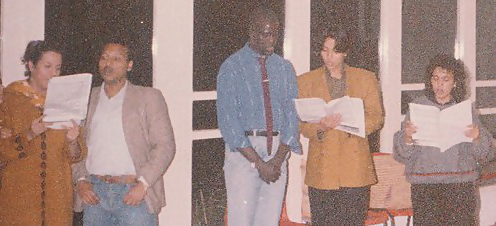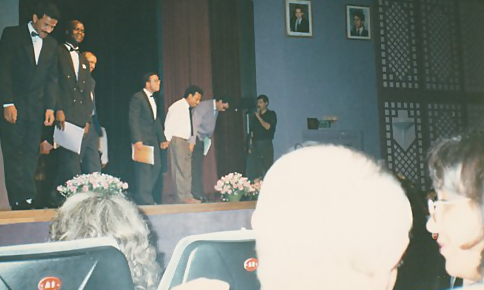
The Liberia-Morocco bilateral scholarship recipients arrived in Morocco in 23 waves. For functional and simplification purposes, the student arrival dates are grouped in four periods viz. 1989, 2010, 2011, and 2018. The first wave consisted of 31 students. They entered Morocco in the antebellum period between 1987 and 1988. In all indications, they are pioneers of the succeeding generations of Liberian students that later entered the Kingdom in various periods and times. The pioneers pursued studies in multiple disciplines, including language arts, agricultural engineering, international economic cooperation, public administration, and hotel management. Besides the professional, technical, and academic programs that they pursued, they also acquired international experience and fluency in different languages, including French and Arabic.
The stark absence of Liberian diplomatic representation in Morocco, the demoralizing effects of the Civil crises at home, and the lack of any government support affected the wellbeing of the students considerably. Some of the pioneers became despondent and abandoned their studies altogether and left Morocco or returned back to Liberia.
I was immensely depressed. I never said anything about it to anyone until now. On several occasions, I contemplated suicide. I would visit the Rabat Ville train station close to the general post office. The train station was also at the back of École nationale d’administration publique (ENAP), my school. Each time I visited that train station, I would watch the passing train and, in some ways, inspect the barb wires separating the pedestrians and the fast-moving train below. I thought that jumping over that barb wires and falling in front of the train was an easy and quick way I could end my life.
Four events saved my life
The first was a note a roommate left under my pillowcase. He noticed that I was behaving very strangely and wanted to let me know how important I was to the group and how everyone cared about me.
The second event took place on the bus. I and another student were on our way to the Moroccan Agency that manages student affairs to ask for the restoration of one of the students’ scholarships. I was usually quiet on the bus. The student noticed. My face was disgruntled as if I didn’t want to intercede in behave of the student. The student told me that if I wished God to take care of me, I would continue to be there for others in times of need.
The third event occurred when I received a registered mail form the Red-Cross regional office in Tunisia. I went to pick up the mail at the Rabat Central post office. It was from my Mother. I opened that letter and began to read it while crossing Avenue Mohammed V, one of the busiest streets in Rabat. I could hear the screeching and cacophonies of car bricks, but I was indifferent and unaffected. Car drivers heaped insults on me: es-tu fou et tu veux mourir? Are you crazy? Do you want to die? One of the drivers stopped his car, got out and asked if I was okay, where I was from, and where I was going?
Then fourthly, after the presentation of my thesis in 1991, I moved to Casablanca and enrolled in a classical music school with the help of some guiding angels. I also joined an opera musical group. The love for classical music, was more than a healing balm. It was my salvation.
Mother’s letter explained that as the Civil War Liberia engulfed Bomi Hill where she and my elder brother along with his children had taken asylum, my family decided to return to Samukha Town, Caldwell. Samukha Town is her birthplace. It’s about 45 minutes’ drive from Monrovia. They had to walk through the thick bushes and thorny vines while the enemies aggressively pursued them. She had a chronic knee problem. She didn’t have the stamina and the energy to run. She was wan. Mother knew if they didn’t move faster, the pursuers would soon capture and kill them including her grandchildren. So, she ordered our elder brother to run with the kids to safety. Amazingly after a week, she appeared alive and well in Monrovia.
Do you remember the roommate that left me a note under my bellow case? He too would go to the kitchen and take the cooking spoon and walk to the closest with it. Everyone did some weird things occasionally symptomatic of a mile or deep depression. We would laugh about these things, but the war and lack of care adversely affected every student consciously or unconsciously.
The remaining students persevered under challenging and trying circumstances until they completed their diploma and degree programs. Their brief bio is indeed a profile in courage. What the pioneers have achieved and become is awe-inspiring, motivational, and daring.


